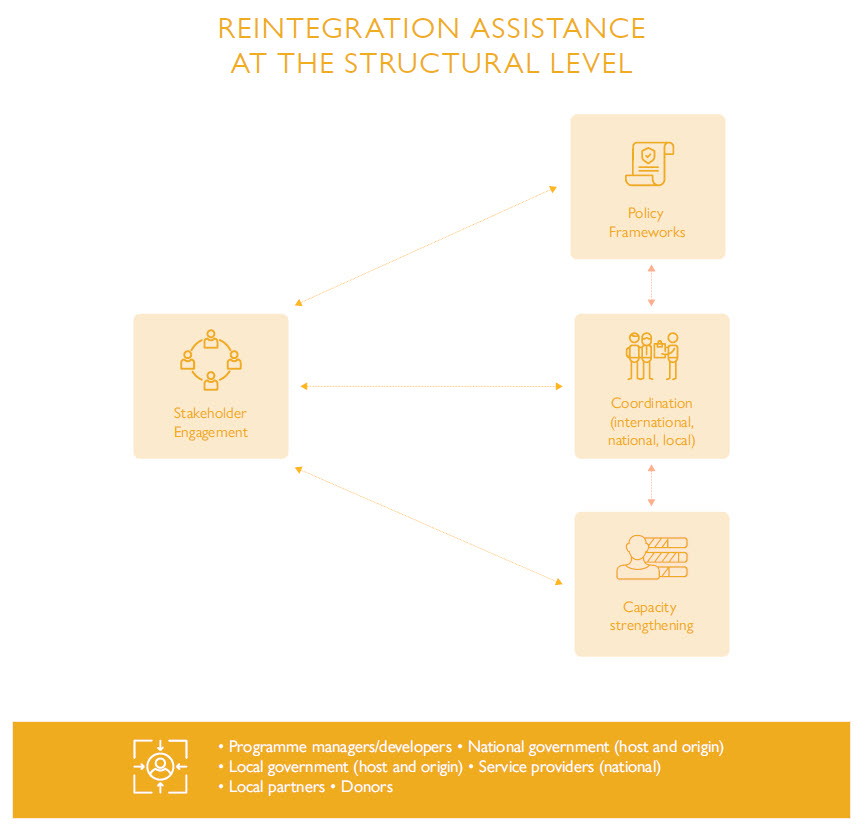Key Messages
Introduction

Structural factors that affect reintegration are related to the political, economic and social conditions at the local, national and international level. They influence how sustainable reintegration strategies should be conceived and the types of partnerships that should be mobilized to support individual returnees and their communities. Conditions such as efficient coordination mechanisms, returnee-oriented policies and strategies, and the capacity and engagement of relevant actors in origin and host countries all affect a returnee’s ability to reintegrate successfully.
The number and scale of structural interventions in a reintegration programme depends on existing capacities in the country of origin and the needs of returnees and communities. Where the number or needs of returnees is limited or well-established social services are available, structural-level interventions could focus on incorporating returnees into existing structures.
However, in countries of origin where capacities and infrastructure are not adequate to provide returnees and the local population with the level of services needed for sustainable reintegration, policy, technical and material support (to public institutions, the private sector and civil society) may be necessary. Existing structural capacities and returnee and community needs can be identified during the initial context, individual and community assessments (see sections 1.4.2, 2.2 and 3.2).
This module provides guidance on strengthening local, national and the international systems of cooperation, governance, coordination and service provision that underpin the delivery of reintegration assistance. It covers building strategic engagement, capacity and ownership of relevant actors; developing and strengthening coordination frameworks; establishing or identifying effective models for international cooperation and strengthening policy frameworks and strategies to support sustainable reintegration.